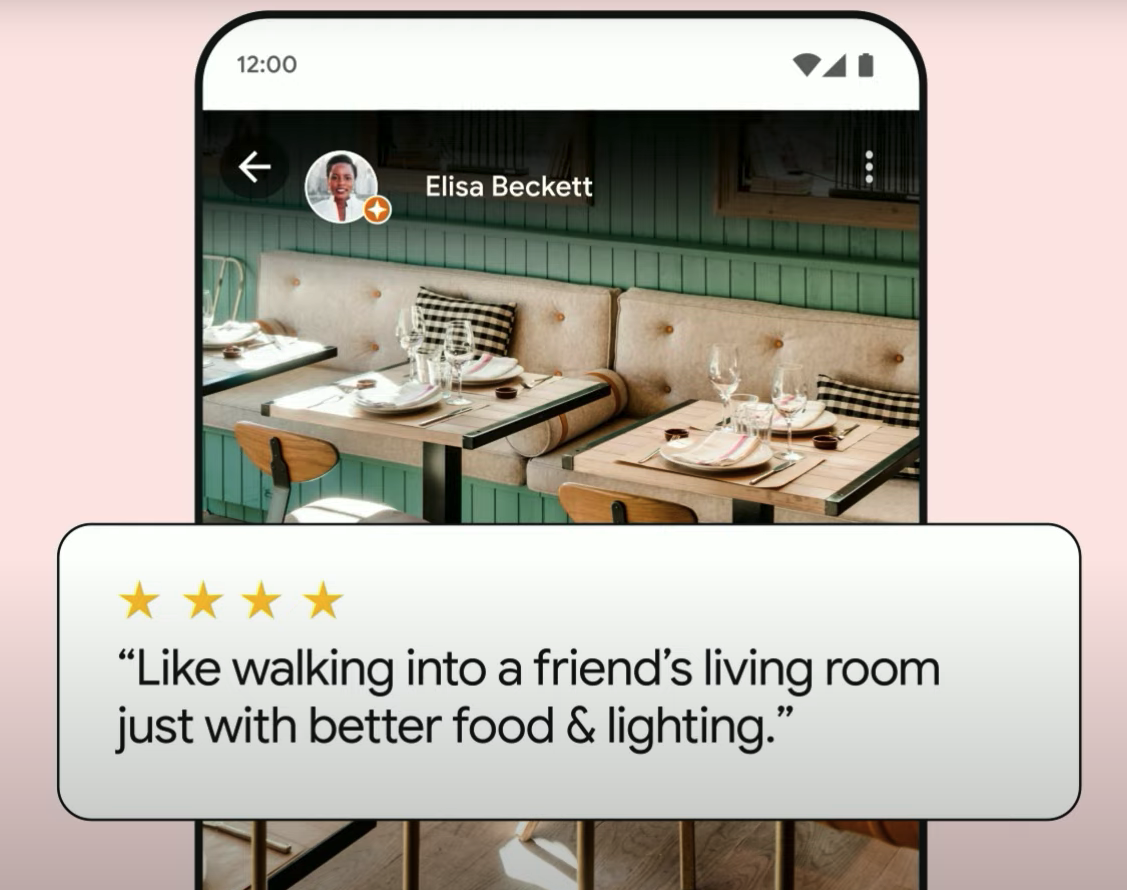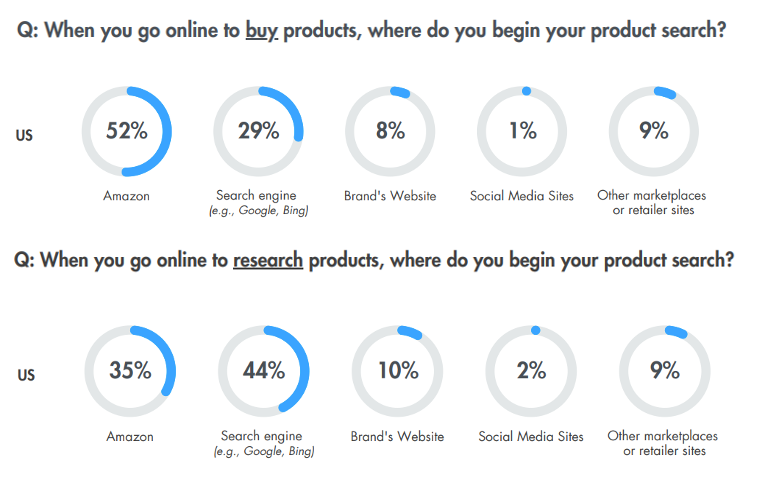Peak Reviews, Google Product Search, AI's Impact

Have We Reached 'Peak Reviews'?
Consumer reviews are a major local ranking factor, with intense industry focus on review management. At the same time we may have reached a turning point and see reviews decline in importance going forward. This is partly because Google is losing the battle against review fraud and consumers are becoming more wary. Overall review growth on Google and Yelp has peaked and now flat-to-declining. One of the reasons some younger users have abandoned Google for TikTok (e.g., restaurant search) is because reviews are seen as uninformative or inauthentic (see here, here). At Google's Search-On event, there was an interesting aside from Sophia Lin, Google GM for food. She said, "Star ratings are helpful but don't tell you everything." Accordingly, Google will be emphasizing pictures and "helpful insights from reviews" as an additional tool. She added, this is like "getting recommendations and insider tips from your friends."

Our take:
- Google has recently become more serious about policing review fraud. This recognizes that neglect is starting to take a toll on trust and usage.
- You might read the above and argue Google isn't backing away from reviews; it's "leveraging" them in clever ways. Perhaps.
- Some of the talk tracks at Search-On sounded like they were directly responding to TikTok features, including the one about restaurants.
Google's Product Search Share
In addition to the Local and Maps-related announcements at Google's Search-On event this week, shopping saw the introduction of a range of new features, including search shortcuts, 3D images, social content and – for the first time explicitly – search personalization. TikTok and Amazon were obvious subtext. And for the past few years Google has been working hard to regain share from Amazon, to keep retail ad dollars flowing. (Local has become a big part of the strategy.) Google and Amazon have locked horns as #1 and #2 in product search over the past several years, but consumers seem to use them differently. A new consumer survey from Channel Advisor shows that when people want to buy products they start on Amazon (52% vs. 29%). But when researching products they prefer Google (44% vs. 35%). There's no historical data so we can't tell if this is represents any sort of gain for Google.

Our take:
- Google has denied personalizing search results in the past. Will shopping personalization open the door to broader search personalization?
- Surveys and behavior are different, but this data suggests that Google may have reclaimed some usage from Amazon. It's not clear.
- The "research on Google, buy on Amazon" dichotomy makes sense; Google has more information (generally), while Amazon offers a streamlined checkout experience and strong customer service.
AI Is Everywhere
Having lunch with a founder of a local startup this week I was asked, what was going to have the biggest impact over the next couple of years? I ticked off a few things, but the clear answer has to be "AI." The term is overused and much abused but its emerging ubiquity is arguably the biggest story in technology. Open AI just made DALL-E 2 available to anyone. This follows a similar, recent move by Stability.AI to release Stable Diffusion to the public. These text-to-image generators are amazing, if imperfect. They will impact artists and stock photo businesses. (Meta just announced text-to-video.) But every nook and cranny of digital life will be touched by AI. It will impact content and ad creation, copywriting and SEO. Indeed, it already is. From medicine to physics, robotics, architecture, urban planning, design, transportation, entertainment, communications, law – and certainly marketing – the impact will be profound.

Our take:
- There are lots of ethical and legal issues to address. For example, who's the author/owner of the image above that I created with DALL-E 2?
- There will be many benefits but also potentially negative outcomes (e.g., algorithm driven hiring, insurance, policing, college admissions, war).
- Having strong legal and ethical guardrails in place will be critical over the next few years – or dystopia here we come.
Short Takes
- Much of GBP mobile traffic is "completely missing in Search Console."
- Google News most trusted site; less trusted than traditional sources.
- Facebook kills the Instagram replacement "OG App."
- Class action filed against Walmart in Illinois for illegal video surveillance.
- Gaming platform Stadia joins other cancelled Google projects.
- Amazon dominates smart home market; iRobot deal under review.
- Everything Amazon announced at its device event this week.
- TikTok popularity forced one Denver restaurant to close its doors.
- TikTok is changing Twitter too.
- Retail AI might create different return policies by customer category.
- Retailers now tracking users like publishers once did.
- Brave to block cookie banners and consent notifications.
- BMW next-gen voice assistant will have Alexa inside.
- Media usage is fragmenting by age group.
Listen to our latest podcast.

How can we make this better? Email us with suggestions and recommendations.

